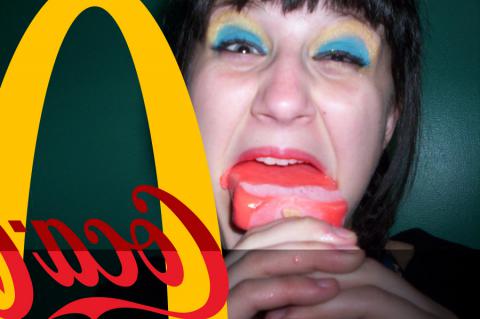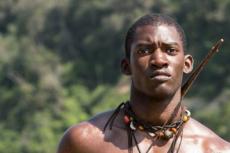Roots. More violence, less story
Having recently re-visited the original Roots on DVD, I found it had dated somewhat, but still had a powerful edge to it, so it was with surprise that I noticed a re-make of Roots, tucked away, mid-week, on BBC Four.
By Phil Jones @PhilLlwynog
Growing up in rural North Wales in the 1970’s I don’t think I’d ever seen a black person in the flesh, not until I left and ended up living in 1980’s Brixton. I had three posters on the wall of my teenage bedroom, Bruce Lee, Pele and Muhammad Ali, they were my boyhood heroes. I suspect I didn’t see their colour, just their personalities and skills. I also liked the Leeds United captain Billy Bremner, but I suspect that was because he was ginger, like me. The only bullying that occurred on Anglesey, were English kids picking on ginger headed welsh speakers.
Out of the two thousand kids at my local comp, all were white, not even a shade of brown, so when the original ‘Roots’ came along in 1977, it had a profound effect on me, a profoundness that has stayed with me to this day. I had an idea about British colonialism, as my father collected magazines that built week by week to an encyclopaedia. I think he was buying them for me, I can’t remember the name, but they featured brutal images of Africans being carried like dead animals, others without feet, others holding the severed hands of their own children for not meeting daily quotas. Photos of burning villages, I remember one quote, that stuck with me: “The British ordered us to cut off the heads of the men and hang them on the village palisades… and to hang the women and the children on the palisade in the form of a cross”. All in the name of Christianity then.
When you think back to 1977, American imports included shows such as, ‘The Walton’s’ and ‘Little House on the Prairie’, an idealistic view of America, whilst top shows in Britain included 'Robin’s Nest', 'One Man and His Dog' and the last episode of 'Love Thy Neighbour'. You can imagine the cultural shock that Roots had.
Having recently re-visited the original Roots on DVD, I found it had dated somewhat, but still had a powerful edge to it, so it was with surprise that I noticed a re-make of Roots, tucked away, mid-week, on BBC Four.
Originally shown in America in May 2016, and commissioned by the History channel, this re-make seems to be a condensed version of the original. For example, the moral dilemma of Captain Davies regarding his command of a slave ship is removed in the re-make. The captain in the 2016 series is depicted as a wholehearted participant in the slave trade, including the abuse of the female slaves on-board his ship, so it seemed that perhaps this would be a more realistic recollection of brutal history.
This version doesn’t start too well, I almost reached for the off switch in the very first few minutes as this version depicted African women like modern day Americans. In the 1770’s to the best of my knowledge African women didn’t wear denim skirts and black bras! What is it with American TV, and their total censorship of female breasts? Women have breasts, and I suspect in 1770’s Africa the concept of the uplift bra hadn’t quite caught on! In this version, life in rural Gambia seems rather glamorous, Jufureh is shown as a large city with ties to major scientific and trade centers, such as Timbuktu. In the original series, Jufereh was depicted as a tiny mud brick village. Which is closer to the truth, I couldn’t tell you. When Kunta is finally caught, and the slave ship sequences are shown, I thought, blimey, the ship is half empty. The 1977 original seemed more accurate in this area; I remember a sickening feeling of claustrophobia and desperation on the ship, a taste of sick and death in the air. As history tells, slaves were typically packed like spoons, and an average slave ship could hold up to 600 slaves. Here it seemed more like about 30 rather well fed guys with plenty of space to move, with plenty of time to have a sing song. Accurate. I think not.
Not the best of starts, but once the story moves on to Virginia, it improves significantly, but seeing ‘Fiddler’ dressed in white mans clothes, was a cruel and unexpected twist. If like me, your old enough to remember the original, it’s hard to get the 1977 version out of your head, seeing burly Forest Whitaker cast as ‘Fiddler’ takes some time to get use to, but he delivers a powerful performance, as does young British actor Malachi Kirby as the young Kunta.
This version has made headlines due to the brutal and realistic violence. The whipping scene of Kunta by sadistic bastard Connelly (played with superb vileness by Scottish actor Tony Curran), is so long and hideous, that by the end of it, I was screaming with tears in my eyes for Kunta just to say ‘Toby”. There is a debate to be had about showing this level of violence. Sadly, the main changes in this rather condensed re-make, is to up the anti with reference to violence. Think of Mel Gibson’s ‘The Passion Of The Christ” with reference to violent scenes, yes it’s as graphic as that.
Perhaps a sad reflection of today’s TV is that violence has to be shown as graphically as this. In a 21st century world when brutal images of be-headings, are so easily accessed, and Britain debates whether to give safety and a roof over the head of a handful of Syrian children, (a deplorable change of heart by our government) sickening TV violence needs to be shown to get a strong message across. However bad things are in the world right now, the god awful truth is, that it’s all happened before, more prolifically, and let’s face it, all in our name. Are these the British values that are now so often spouted by ridiculous politicians? Lest we forget, Roots could have so easily been set in 1770’s Britain.
The re-make of Roots is fine TV, it has its flaws, many of them, but it still superior TV, that everyone should watch, however uncomfortable, it may put into perspective the rage people feel about how society has become so intolerant, about race, religion and the colour of your skin.




